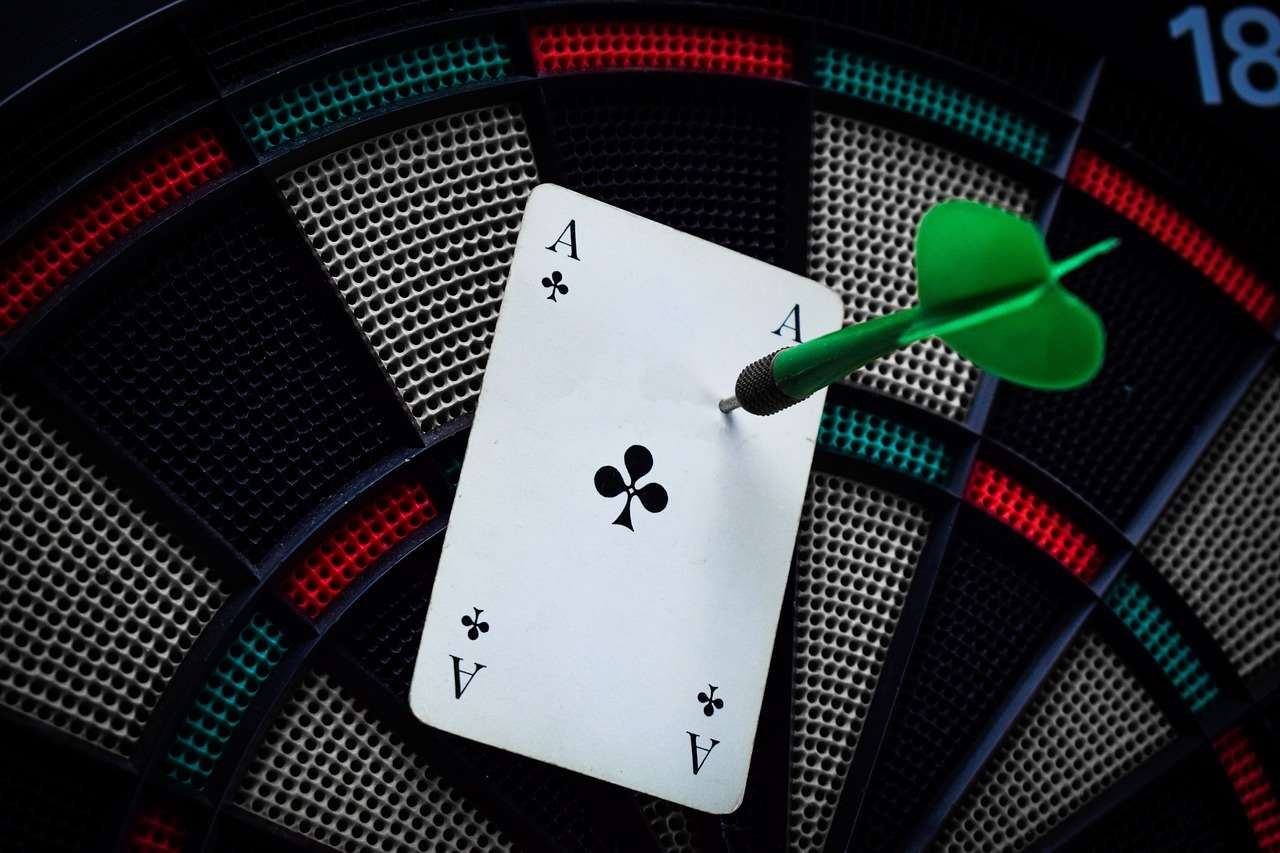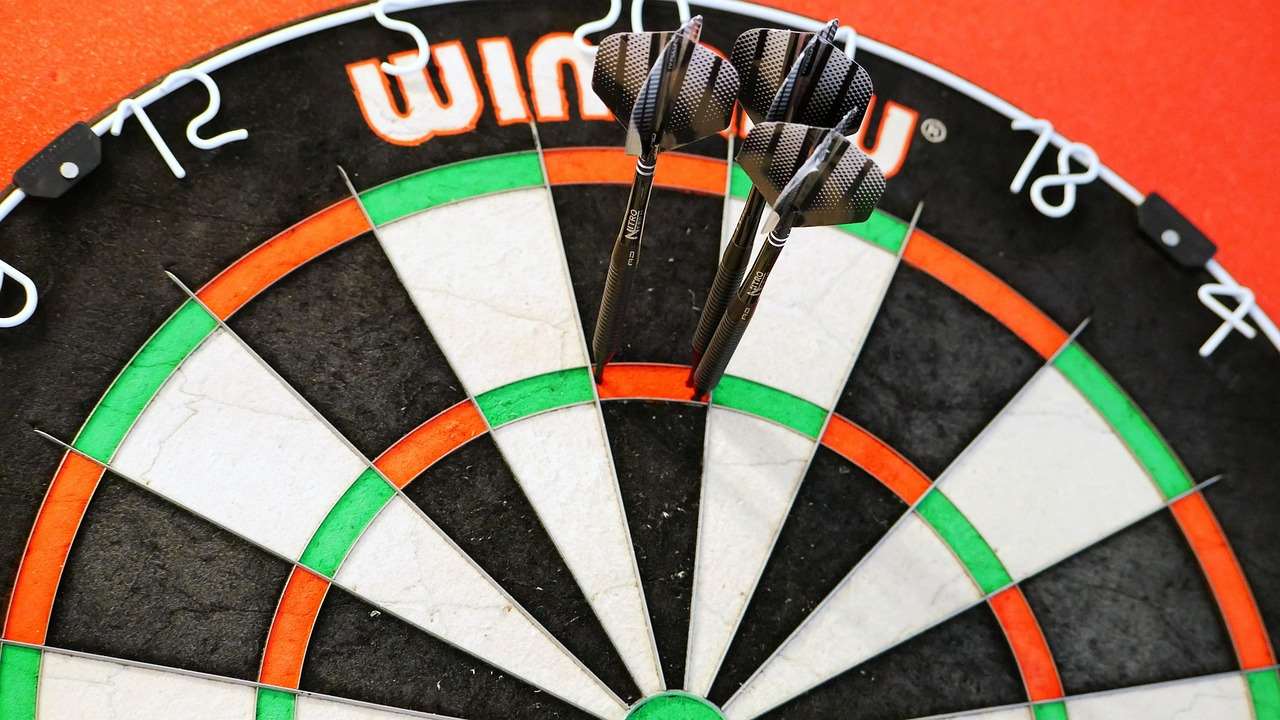Defining ‘caller’ in a darts match is essential for fair play and smooth gameplay; this person is responsible for announcing scores and keeping the match flowing. This article will explore the caller’s role, responsibilities, and the skills required to perform this important task effectively, plus some tips for those looking to take on this role.
⚠️ Still Using Pen & Paper (or a Chalkboard)?! ⚠️
Step into the future! The Dart Counter App handles all the scoring, suggests checkouts, and tracks your stats automatically. It's easier than you think!
Try the Smart Dart Counter App FREE!Ready for an upgrade? Click above!
The Crucial Role of the Caller: Defining ‘Caller’ in a Darts Match
In any competitive darts match, the caller is more than just someone reading out numbers. They are the central communication hub, ensuring both players and any spectators are fully aware of the unfolding game. They provide clear and concise information, manage the flow of play, and contribute to the overall atmosphere of the match.

Without a competent caller, a darts match can quickly descend into confusion and disputes. The caller’s role is absolutely essential to maintaining order and fairness. The precision of the caller’s announcements contributes significantly to the match’s professionalism and atmosphere.
Key Responsibilities of a Darts Caller
A darts caller has several key responsibilities. These include:
- Announcing the score: This is the most obvious and crucial part of the caller’s job. The caller must accurately calculate and announce the score after each throw.
- Keeping track of the running total: The caller needs to track the score remaining for each player after each throw.
- Calling out the remaining score to win: At the end of legs the caller will call the score required for checkout, as well as the target number to aim at.
- Announcing when a player is on a finish: A “finish” is when a player has a score remaining that can be checked out (completed) in three darts or less.
- Managing the flow of play: The caller ensures that players take turns correctly and prevents delays.
- Enforcing the rules: While not strictly a referee, the caller often needs to clarify rules and ensure fair play is maintained. This may involve confirming whether a dart landed in the correct segment or dealing with disputed throws.
- Communicating with the players: The caller must be able to clearly communicate with the players, answering any questions they may have regarding scores or rules.
Essential Skills for Effective Calling
While the responsibilities outlined above are important, the caller also needs to cultivate the following skills to perform their role effectively. Consider Basic Darts Fundamentals for Beginners before starting.
Accuracy and Calculation Skills
The ability to accurately calculate scores quickly and efficiently is paramount. Callers need to be comfortable with mental arithmetic and capable of subtracting scores from running totals under pressure. They should also be able to anticipate potential checkouts and understand common dartboard layouts.
Clear and Concise Communication
A caller must be able to speak clearly and concisely, using a tone that is audible and easily understood by both players and spectators. Avoid jargon or overly complex language. The caller must have good command of language and communicate effectively. Pronunciation is important, especially when calling out unusual or large numbers.
Impartiality and Objectivity
A caller must remain impartial and objective at all times. They should not show favoritism towards either player and should focus solely on providing accurate information. Any personal opinions or biases must be kept out of the commentary.
Confidence and Authority
A good caller projects confidence and authority, ensuring that players respect their decisions and adhere to the rules. This doesn’t mean being aggressive or overbearing, but rather demonstrating a clear understanding of the game and a willingness to enforce the rules fairly.

Staying Calm Under Pressure
Darts matches can be tense and exciting, especially during close finishes. The caller must be able to remain calm and focused, even when under pressure. They should avoid rushing or making mistakes, even in high-pressure situations. This is where experience comes in, allowing the caller to deal with situations that they have dealt with before.
Defining ‘Caller’ in a Darts Match: Beyond the Basics
While the fundamental role of the caller is scorekeeping and managing the flow of play, there are nuances that separate a good caller from a great one. Understanding these nuances enhances the overall experience of the darts match for everyone involved.
Adding Flavor to the Match
While impartiality is crucial, a caller can subtly add to the atmosphere of a match. A well-timed phrase or a slightly raised voice during a crucial moment can add excitement without compromising objectivity. This requires a feel for the game and an understanding of when to inject personality. The aim is to enhance the spectator enjoyment of the game and add to the excitement.
Knowing the Players
If the caller is familiar with the players, they can personalize the calling to some extent. This might involve using nicknames or acknowledging past achievements. However, it’s important to avoid any comments that could be perceived as biased or unfair. If you want to make it fairer, consider How to make darts fairer with handicap rules.
Dealing with Disputes
Even with the best intentions, disputes can arise during a darts match. The caller needs to be able to handle these situations calmly and fairly, relying on the rules of the game to make a decision. If necessary, they may need to consult with other officials or refer to the official rulebook.

Practical Tips for Aspiring Darts Callers
If you’re interested in becoming a darts caller, here are some practical tips to help you get started:
- Practice your arithmetic: Regularly practice mental arithmetic to improve your speed and accuracy. There are many online resources and apps that can help with this.
- Watch professional darts matches: Pay close attention to the callers in professional matches, noting their techniques and style.
- Attend local darts tournaments: Volunteer to be a caller at local tournaments or events to gain experience.
- Record yourself: Record yourself calling a practice match and listen back to identify areas for improvement.
- Seek feedback: Ask experienced players or callers for feedback on your performance.
Tools and Resources for Darts Callers
Several tools and resources can assist darts callers in performing their duties more effectively:
- Scoreboards: Electronic scoreboards can automate scorekeeping and reduce the risk of errors.
- Checkout charts: Checkout charts provide a quick reference for possible checkouts, helping callers to announce potential finishes.
- Darts rulebooks: Official darts rulebooks outline the rules of the game and can be used to resolve disputes.
- Online darts calculators: Many online calculators can help with scorekeeping and checkout calculations.

The Future of Darts Calling
Technology continues to evolve, and the role of the darts caller may change in the future. Automated scoring systems and virtual reality technologies could potentially automate some of the caller’s tasks. However, the human element of a caller, including their ability to add flavor and manage disputes, is likely to remain valuable. There may be modifications and you can find more by reading Modifying rules for mixed-level dart players.
The Importance of a Positive Caller Environment
For a caller to perform their duties effectively, a positive and supportive environment is essential. This includes:
- Respect from players: Players should respect the caller’s decisions and avoid arguing or disputing calls.
- Clear communication: Players should communicate clearly with the caller if they have any questions or concerns.
- Support from organizers: Tournament organizers should provide callers with the necessary tools and resources and create a supportive atmosphere.

By fostering a positive environment, you can help ensure that callers are able to perform their duties to the best of their ability, contributing to the overall success of the darts match.
Understanding the Darts Lingo
Part of **defining ‘caller’ in a darts match** also involves knowing the specific lingo used in darts. Some essential terms include:
- Ton: A score of 100
- Ton 40: A score of 140
- 180: The highest possible score with three darts (three treble 20s)
- Checkout: Finishing the game by reaching exactly zero with a double or bullseye
- Leg: One game of darts
- Set: A collection of legs
Familiarity with these terms enhances the caller’s ability to communicate effectively and understand the nuances of the game. You might even find the game enjoyable with some Fun dart game variations with modified rules.
Conclusion
Defining ‘caller’ in a darts match extends beyond simply announcing scores; it’s about ensuring fair play, managing the game’s flow, and enhancing the overall atmosphere. By developing accuracy, communication skills, and a calm demeanor, you can excel in this vital role. Whether you’re an aspiring caller or a seasoned pro, understanding the nuances of the position is crucial. So, embrace the challenge, hone your skills, and contribute to the exciting world of darts. Want to learn more about adapting dart rules for different settings? Check out our other articles for more insights.
Hi, I’m Dieter, and I created Dartcounter (Dartcounterapp.com). My motivation wasn’t being a darts expert – quite the opposite! When I first started playing, I loved the game but found keeping accurate scores and tracking stats difficult and distracting.
I figured I couldn’t be the only one struggling with this. So, I decided to build a solution: an easy-to-use application that everyone, no matter their experience level, could use to manage scoring effortlessly.
My goal for Dartcounter was simple: let the app handle the numbers – the scoring, the averages, the stats, even checkout suggestions – so players could focus purely on their throw and enjoying the game. It began as a way to solve my own beginner’s problem, and I’m thrilled it has grown into a helpful tool for the wider darts community.